Review: Trio. For the beauty of it
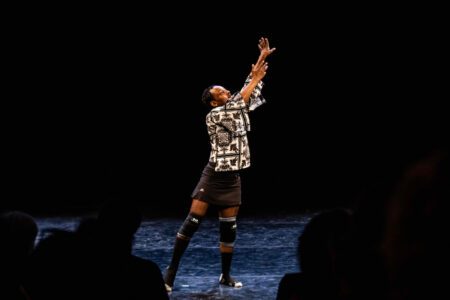
| Location | Goose on a String Theatre / Provazek hall in Brno, Czech Republic |
| Date of Performance | May 23, 2024 |
| Language(s) | English, French, and Spanish |
| Photos by Ivo Dvořák | Alex Mugler |
Reviewed by Amanda L. Andrei
Poisson. Head bob. Poisson. Head bob. Je suis. Hand-chest. Je suis. Hand-chest.
In a simple rhythm, a pair of dancers build gestural language: one speaks into a microphone far downstage, almost in the audience, and the other waits in the center, associating a body motion with the spoken word. As “poisson” (French for “fish”) becomes a dip of the head, other words in French and English follow suit throughout Trio. For the beauty of it. The three dancers of the transnational company La Fleur use spoken language only to transcend speech, all while deftly unveiling their creative process to the audience and celebrating their heritage dance styles.
Director Monika Gintersdorfer and choreographer Franck Edmond Yao, both co-founders of La Fleur, conjure an ingenious space for each dancer to shine individually as well as an ensemble.
The Ivorian choreographer and dancer Ordinateur rises first with coupé-décalé, a style of dance and music originating from the Ivorian diaspora in Paris in the early 2000s. He vibrates with atomic essence, the repetition and speed of his steps so simple and precise that the effect is trancelike. Speaking in French, the dancer also tells us that in Côte d’Ivoire, the slang for this dance is “roukasskass,” a word both crunchy and sibilant that feels in line with the swift drumbeats and Ordinateur’s footsteps.
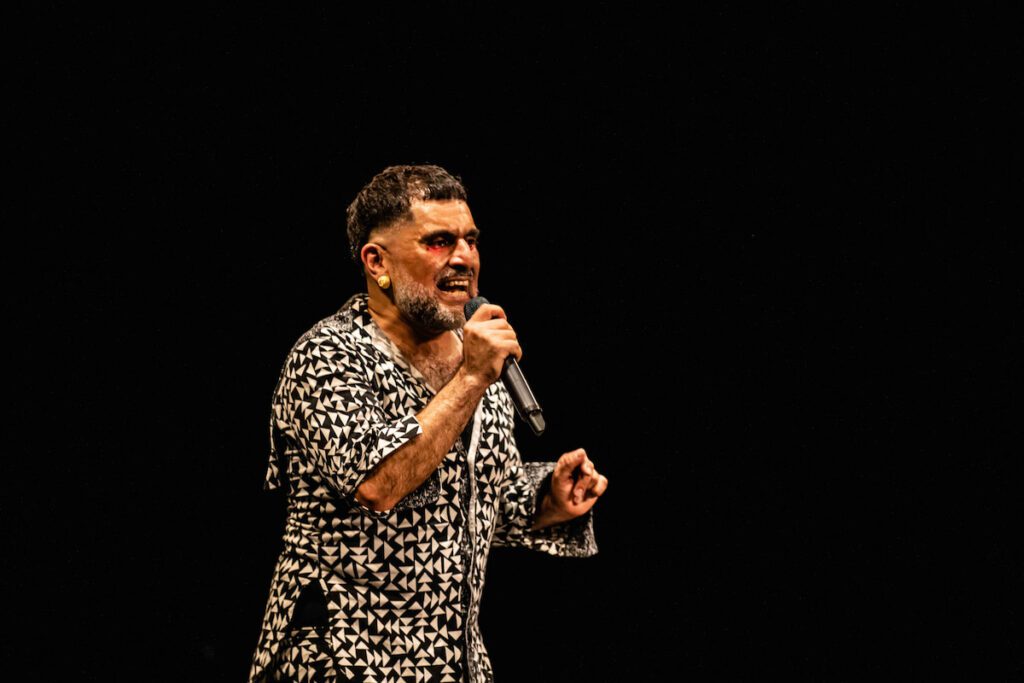
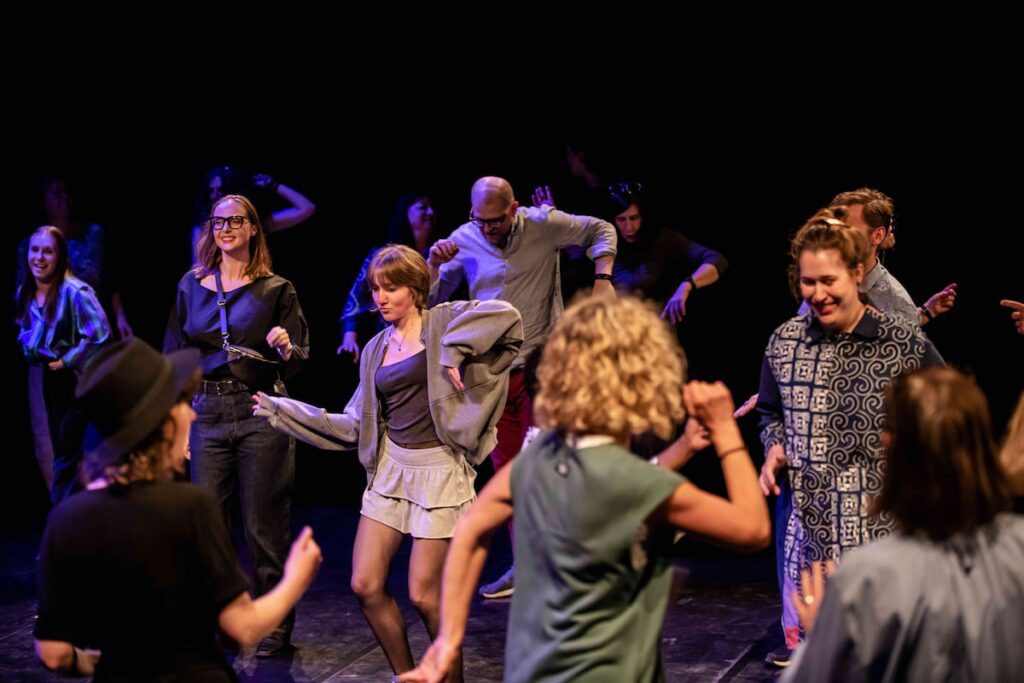
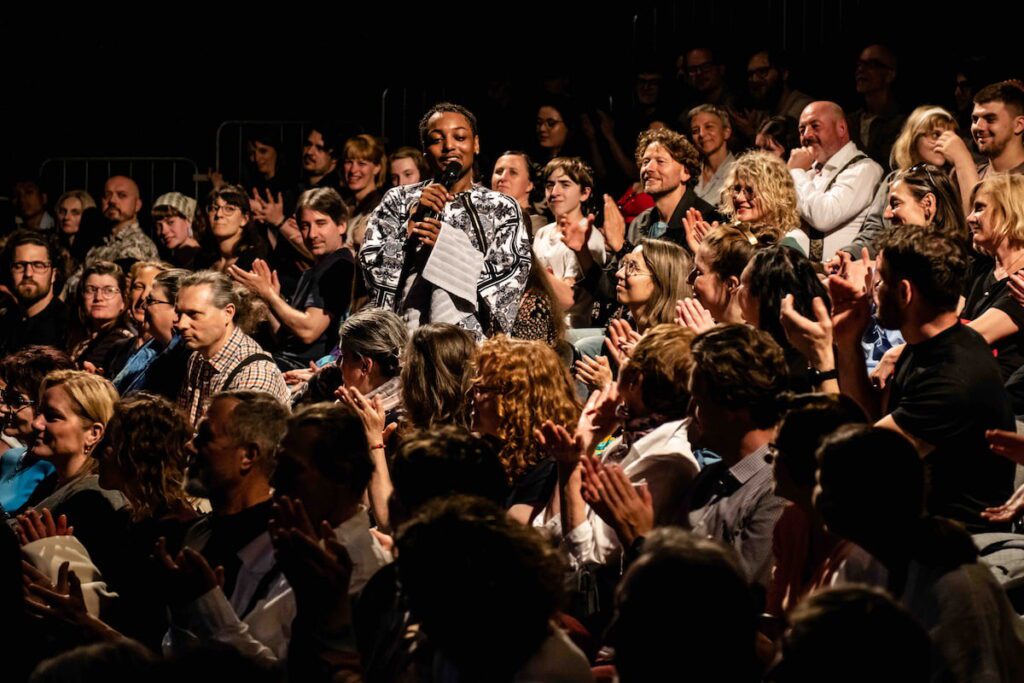
Carlos Gabriel Martínez Veláquez shakes us into cumbia sonidera, a Mexican subgenre of cumbia, a DJ-influenced music and dance style with roots in Latin American and African traditions. To the sounds of salsa guitar licks with an electronica touch, Veláquez spins and quakes with abandon, drawing in the other dancers.
Switching between English and Spanish, the dancer also generously shares meanings of the symbols behind his cultural and artistic influences. Most striking is the idea of the snake, which he tells the audience, “The snake helps us do the right thing in the right moment in the right mode.” In the midst of such festivities, it’s a beautiful reflective moment of how a dancer intuits their next move, how the animal and the divine are present as a source of grace, awareness, and eroticism.
Repping the New York vogue and ballroom scene, Alex Mugler shares with us the dance style developed by queer black and Latine folks of color from the 1960s and onwards in Harlem. With confidence and poise, Mugler’s hands and arms swoop, dive, and flourish before he leaps to the floor, nimbly twisting and posing to loud cheers.
His performance of a song about “kiki”—a slang term from ballroom culture that can refer to the giddiness of a friends’ gossip circle—provides a ticklish moment with a deeper meaning. As the three dancers weave in and out of each other’s space, reciting opposites such as “up, down, right, left,” Mugler sings variations of “let’s have a kiki.” It’s as breezy and fun as spilling tea tends to be, but it also serves as a subtle approach to breaking binaries: we can interrupt our notions of dualism and black-and-white thinking with the frivolity and mercurialness, letting us view the world with more fun and ease.
Towards the end of the hour, Mugler leads Ordinateur and Veláquez in a ballroom dance-off, telling us that we get to judge their skills. It’s another act of generosity to invite us into this world, and we roar with praise for the dancers—who then invite us onstage to romp and whirl with them. And when dancers this skillful encourage you to play and move with them, there’s no hesitation. You dance for the beauty of it.
More information about the Theatre World Brno 2024 Festival (May 17-28) is available here.
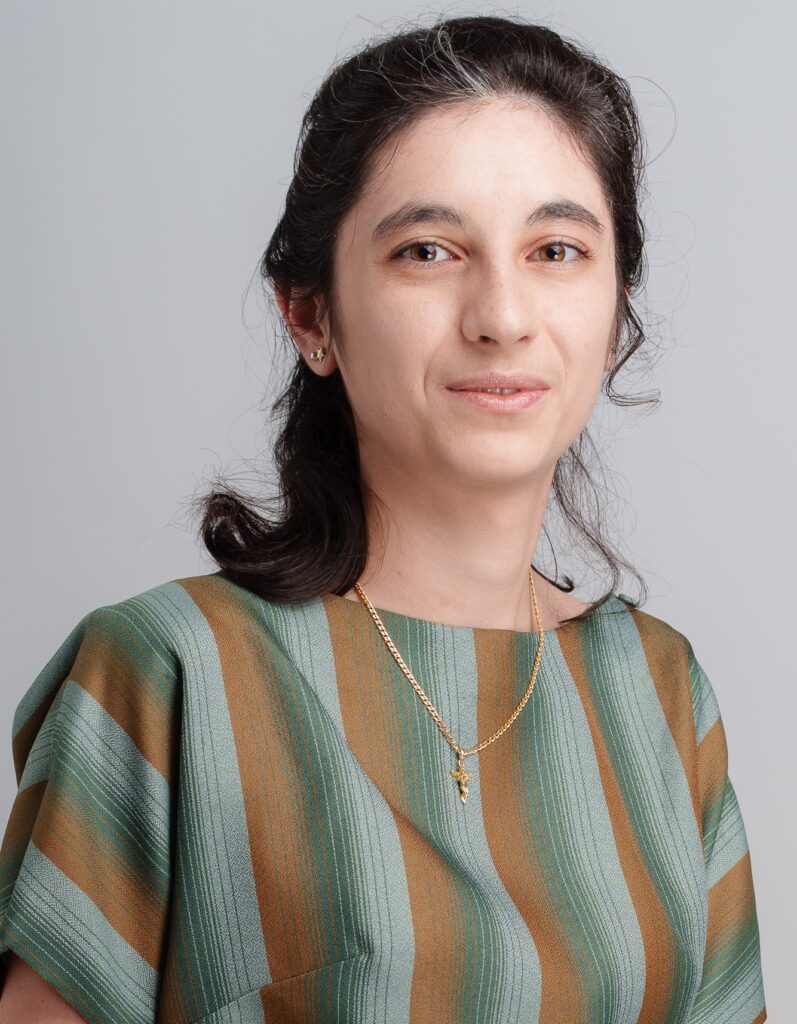
Ioana Bîrjan (b.1997) is the author of Vârsta Iubirii which translates into English as The Age of Love (Heyday Books, 2023). The novel is inspired by the Lady of the Camellias and the opera La traviata. She earned a bachelor’s degree from the Faculty of Letters, Ovidius University of Constanța, where she is now a graduate student in the Romanian Studies program.
Read more of her work in magazines, in anthologies, and on her blog: https://scrierileioanei.wordpress.com/
SUPPORT SEEFEST
Not a member yet? Become an art patron with other SEEfest arthouse aficionados in support of great events and programs. Our mission is to keep you informed about initiatives from our wide network of fellow cultural organizations.
We Welcome YOU!

